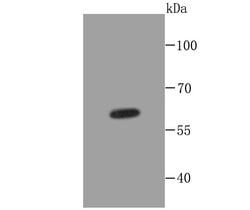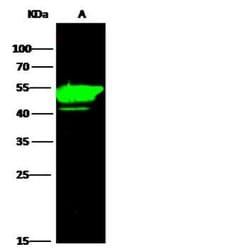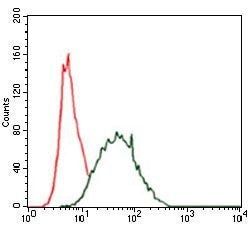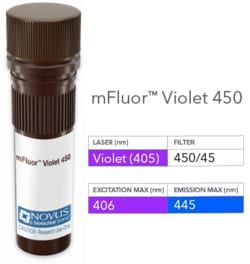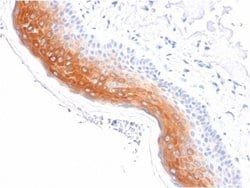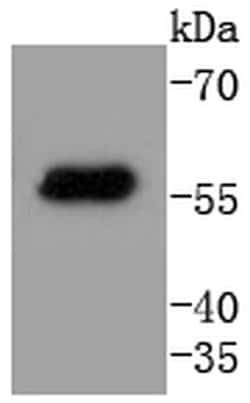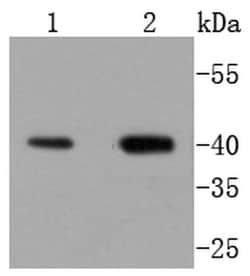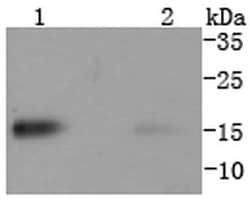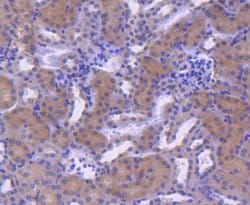Cytokeratin 4 Recombinant Rabbit Monoclonal Antibody (SN2001), Invitrogen™
Manufacturer: Thermo Scientific
Select a Size
| Pack Size | SKU | Availability | Price |
|---|---|---|---|
| Each of 1 | PIMA532337-Each-of-1 | In Stock | ₹ 47,481.50 |
PIMA532337 - Each of 1
In Stock
Quantity
1
Base Price: ₹ 47,481.50
GST (18%): ₹ 8,546.67
Total Price: ₹ 56,028.17
Antigen
Cytokeratin 4
Classification
Monoclonal
Concentration
1 mg/mL
Formulation
TBS with 0.05% BSA, 40% Glycerol and 0.05% sodium azide, pH 7.4
Gene Accession No.
P19013, Q6IG00
Gene Symbols
KRT4
Immunogen
Synthetic peptide within Human Cytokeratin 4 aa 1-50
Quantity
100 μL
Primary or Secondary
Primary
Target Species
Human, Rat
Product Type
Antibody
Isotype
IgG
Applications
Immunocytochemistry, Immunohistochemistry, Western Blot, Western Blot
Clone
SN2001
Conjugate
Unconjugated
Gene
KRT4
Gene Alias
57kd keratin, 57kDa keratin, AW108092, cb59, CK4, CK-4, CYK4, cytokeratin, cytokeratin 4, cytokeratin-4, Cytoskeletal 57 kDa keratin, etID20321.6, intermediate filament protein, K4, Kb4, keratin 4, keratin 4, type II, keratin 8, keratin complex 2, basic, gene 4, keratin, type II cytoskeletal 4, Keratin-4, Krt-2.4, Krt2-4, Krt4, krt4 {ECO:0000250, krt4 protein, krt8, type II basic cytokeratin, type II keratin Kb4, type-II keratin Kb4, UniProtKB:P19013}, WSN1, wu:fa91a11, wu:fd19e09, wu:fl23c09, zf-K8
Host Species
Rabbit
Purification Method
Protein A
Regulatory Status
RUO
Gene ID (Entrez)
315323, 3851
Content And Storage
Store at 4°C short term. For long term storage, store at -20°C, avoiding freeze/thaw cycles.
Form
Liquid
Description
- Recombinant rabbit monoclonal antibodies are produced using in vitro expression systems
- The expression systems are developed by cloning in the specific antibody DNA sequences from immunoreactive rabbits
- Then, individual clones are screened to select the best candidates for production
- The advantages of using recombinant rabbit monoclonal antibodies include: better specificity and sensitivity, lot-to-lot consistency, animal origin-free formulations, and broader immunoreactivity to diverse targets due to larger rabbit immune repertoire
- Cytokeratins are a subfamily of intermediate filament proteins and are characterized by a remarkable biochemical diversity, represented in human epithelial tissues by at least 20 different polypeptides
- They range in molecular weight between approximately40 kDa and approximately68 kDa and isoelectric pH between 4
- 9-7
- 8
- The individual human cytokeratins are numbered 1 to 20
- The various epithelia in the human body usually express cytokeratins which are not only characteristic of the type of epithelium, but also related to the degree of maturation or differentiation within an epithelium
- Cytokeratin subtype expression patterns are used to an increasing extent in the distinction of different types of epithelial malignancies
- The cytokeratin antibodies are not only of assistance in the differential diagnosis of tumors using immunohistochemistry on tissue sections, but are also a useful tool in cytopathology and flow cytometric assays.
